Recent Articles
Popular Makes
Body Types
10 Best Value SUVs
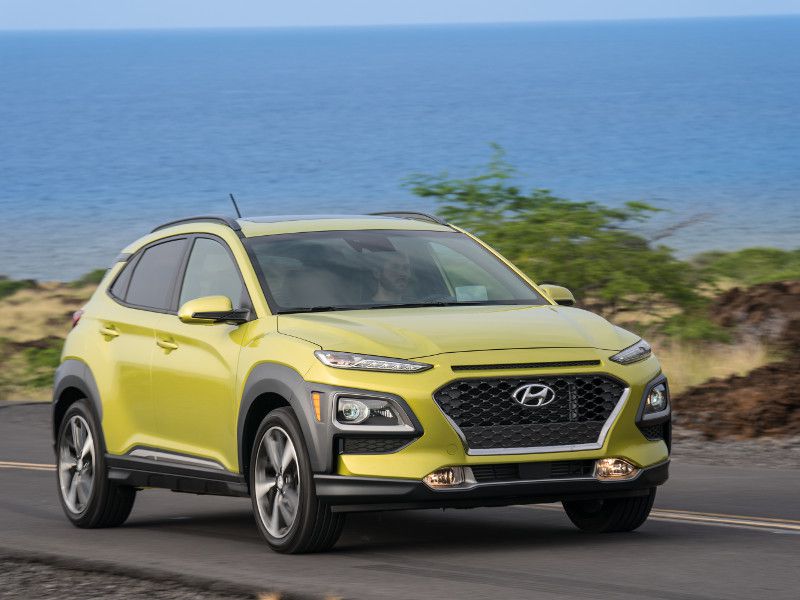
2020 Hyundai Kona ・ Photo by Hyundai
Everyone wants an SUV today, even those who are shopping on a tight budget. The higher seating position, the extra cargo space, the go-anywhere vibe, the utility of all-wheel-drive — these are among the leading factors that have won so many people out of sedans and into crossover SUVs.
There are lots of great SUVs at any price point you pick, as we demonstrated in a recent article about the 10 best SUVs for the money. Today, though, we’re focusing specifically on value SUVs: the ones that are already well-equipped for less than $30,000 and that work hard to keep your expenses low. Check out our full list of selections, which we’ve sorted by their base sticker prices.
1. 2020 Hyundai Venue
The 2020 Hyundai Venue is an all-new subcompact crossover that barely meets the definition of an SUV. Sure, it looks moderately SUV-like, with its cheekily upright front end and boxy profile. But it’s available only with a tiny 121-horsepower four-cylinder engine, and it doesn’t offer all-wheel-drive.
Still, when you’re looking for value, the Venue has lots of it. It starts at just $17,350, making it the least expensive SUV-like vehicle you can buy. And that’s not because Hyundai skimped on content; the Venue brings lots of standard safety and infotainment features even on the base model, plus three years or 36,000 miles of free factory maintenance and up to 10 years and 100,000 miles of warranty protection. Superb EPA-estimate fuel economy of 32 mpg in mixed driving also keeps costs down. And while this isn't a spacious vehicle, the Venue has more room than you might expect. Some interior plastics could be better, and it could be peppier and smoother on the highway. But the tiny Venue punches above its price bracket, making it a great value SUV.
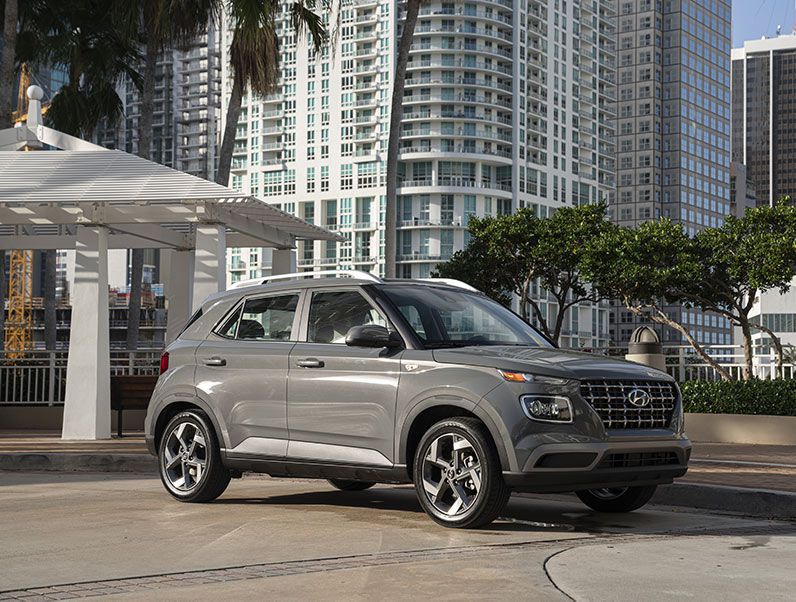
Photo by Hyundai
2. 2020 Kia Soul
The Kia Soul has been a standout value since its first generation debuted a decade ago, before anyone thought to consider it an SUV. Like the Venue, it lacks all-wheel-drive. But it’s roomier, quieter, and more powerful than the Hyundai, all at similar prices — starting from just $17,490.
The Soul entered its third generation for the 2020 model year, with its redesign bringing it improved agility, thriftier fuel efficiency (30 mpg in mixed driving with the most popular configuration), and more widely available safety features. The Venue gets better mileage, has more standard safety features, and has a more modern interior design. But if you’re looking for a value SUV, and you don’t need a massive interior or all-wheel-drive, the Soul is the first place to look.
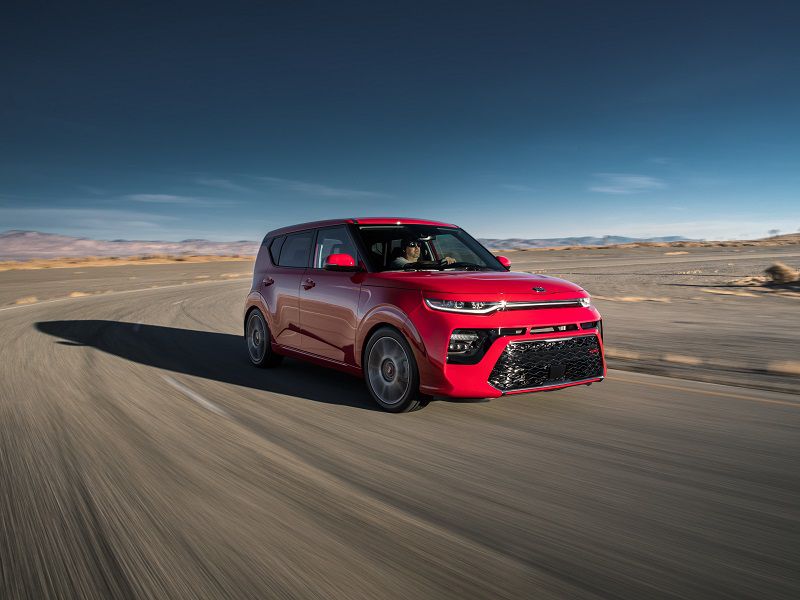
Photo by Kia
3. 2020 Hyundai Kona
We return to Hyundai for the next of our 10 best value SUVs. This time, we’re looking at the 2020 Hyundai Kona, which is one size up from the Venue.
While the Kona is bigger and more expensive than the Venue, it’s not much roomier. This isn’t the SUV you’d pick if you want to carry adults in the back seat or haul lots of cargo. Its big advantage is that it’s terrific fun to drive, especially with its optional 175-hp turbocharged engine. Poised, confident handling; a firm, stable ride; and peppy acceleration, even with the base 147-hp non-turbo engine, make the Kona feel expensive. And unlike the Venue or Soul, all-wheel-drive is available. Prices start at $20,300, with the same generous warranty terms and free scheduled maintenance as the Venue. EPA fuel economy estimates range from 27 mpg to 30 mpg depending on your chosen engine and drivetrain.
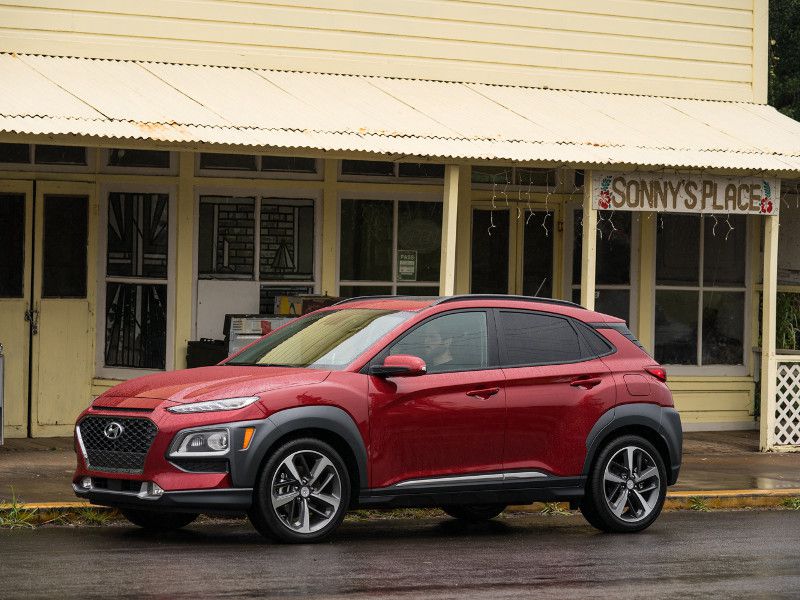
Photo by Hyundai
4. 2020 Chevrolet Trax
The 2020 Chevrolet Trax is an aging subcompact crossover that never set many hearts afire. It doesn’t have the latest safety technology, it doesn’t have a roomy interior, it’s not much fun to drive, and its gas mileage isn’t great at 26 to 28 mpg in mixed driving.
But the overlooked, forgotten Trax might be the best value SUV for the right bargain-hunting customer. That’s because it’s more frequently discounted than its competitors, meaning you can expect to pay much less than the $21,300 base asking price — potentially, less than any of the other models on our list. If you aren’t offered a great deal, though, one of our other selections is likely the stronger choice.
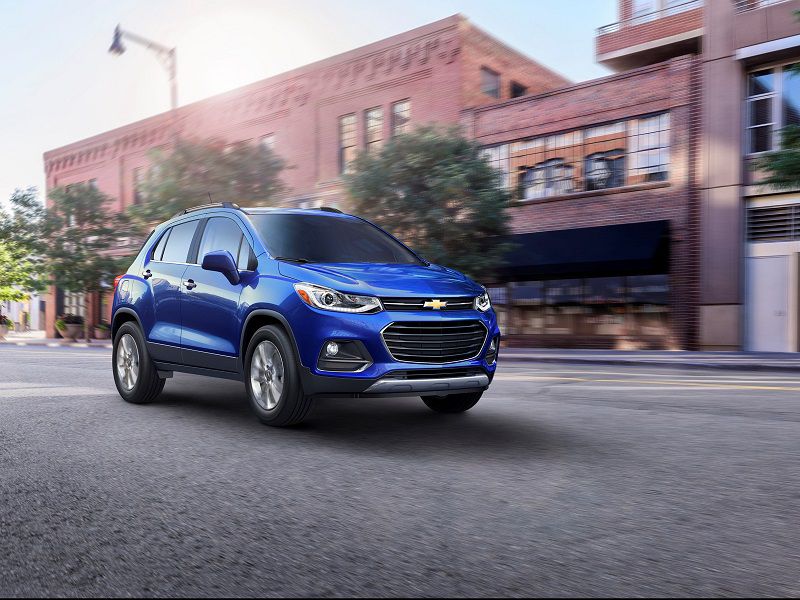
Photo by Chevrolet
5. 2020 Mazda CX-30
Some of our 10 best value SUVs offer lots of space for the money, or the lowest possible base price. The 2020 Mazda CX-30, by contrast, offers a lot of luxury for the money.
Like the Hyundai Kona, the CX-30 is a subcompact crossover that prioritizes a top-notch driving experience over a spacious interior or high SUV-like seating position. It also brings a more luxuriously finished cabin, particularly comfortable front seats, and a quieter ride, along with lots of standard features at its base price of $21,900. The CX-30 isn’t much more of an SUV or much roomier than the Mazda3 hatchback it’s based on — but then again, it’s also not much more expensive. However, its big 2.5-liter 186-hp four-cylinder engine keeps it from being a fuel-sipper; EPA fuel economy ratings range from 26 mpg to 28 mpg in mixed driving, depending on the trim level and whether you pick front- or all-wheel-drive.
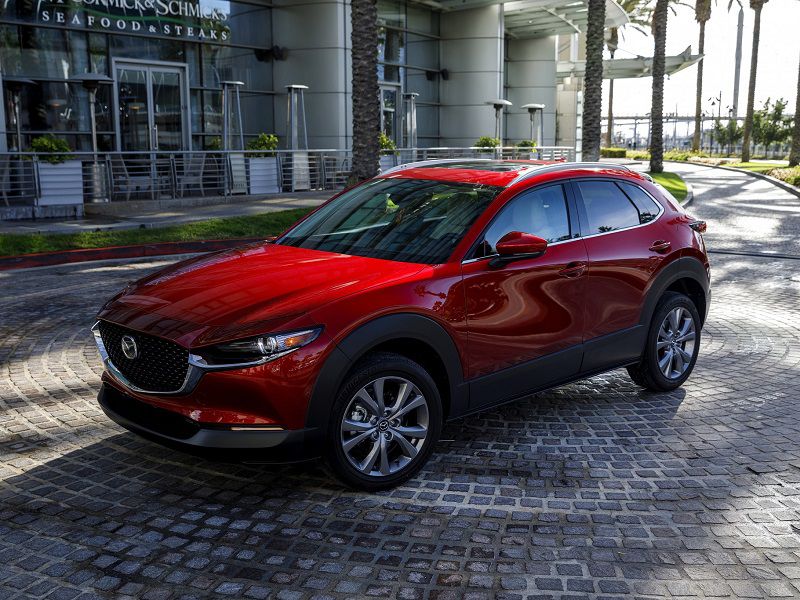
Photo by Mazda
6. 2021 Kia Seltos
The newly introduced 2021 Kia Seltos is a mechanical cousin to the Hyundai Kona, but Hyundai and Kia created very different subcompact crossovers. The Kona is a funky, fun little car, while the Seltos is more like a shrunken-down version of a larger SUV: taller, roomier, and more classically handsome.
It’s a rare and winning combination in the subcompact class, especially when you consider all the standard equipment included in the Seltos’ $21,990 base price. This is a subcompact crossover that many buyers of larger, more expensive models should check out carefully — besides its greater affordability, the Seltos’ agility and maneuverability might even prove an asset. In the end, you may decide to pay a few thousand dollars extra for a smoother ride, fancier interior plastics, or even more space. But you might not. The Seltos shares its choice of turbocharged and non-turbo engines with the Kona, and their EPA estimates range from 27 mpg to 31 mpg in mixed driving.
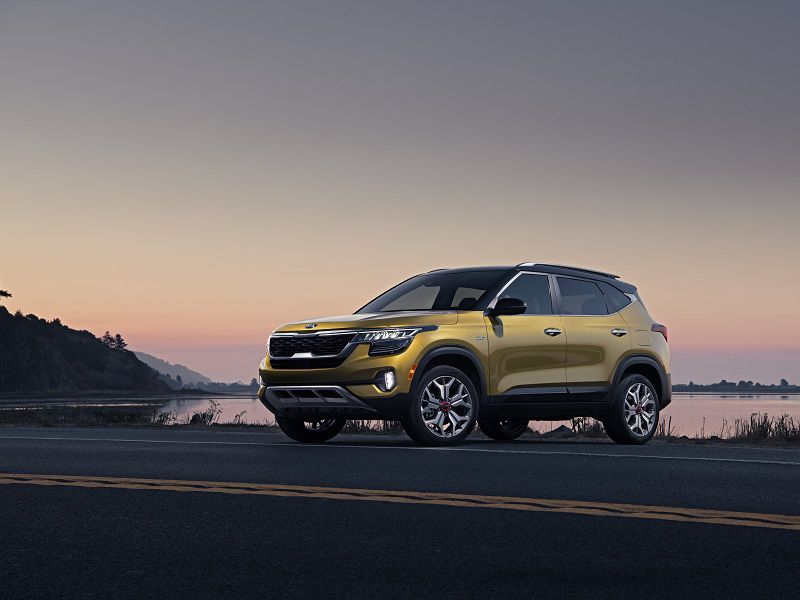
Photo by Kia
7. 2020 Subaru Forester
Moving up to the compact crossover class, one of the best value SUVs is the 2020 Subaru Forester. It’s priced from just $24,495 with standard all-wheel-drive, a spacious interior, a smooth ride, a full complement of advanced safety features, and huge windows for expansive visibility. Furthering its value credentials are a 182-hp engine whose EPA-estimated 29 mpg in mixed driving beats many subcompact models, and an excellent record for slow depreciation — good news when you trade in your Forester in three, five, or 15 years.
The Forester isn’t an especially fancy crossover. It’s not zippy and fun, it’s not luxuriously finished or especially quiet, and even though it was redesigned just last year, it doesn’t look cutting-edge. But its blend of comfort, hardiness, and exceptional affordability is a winning formula.
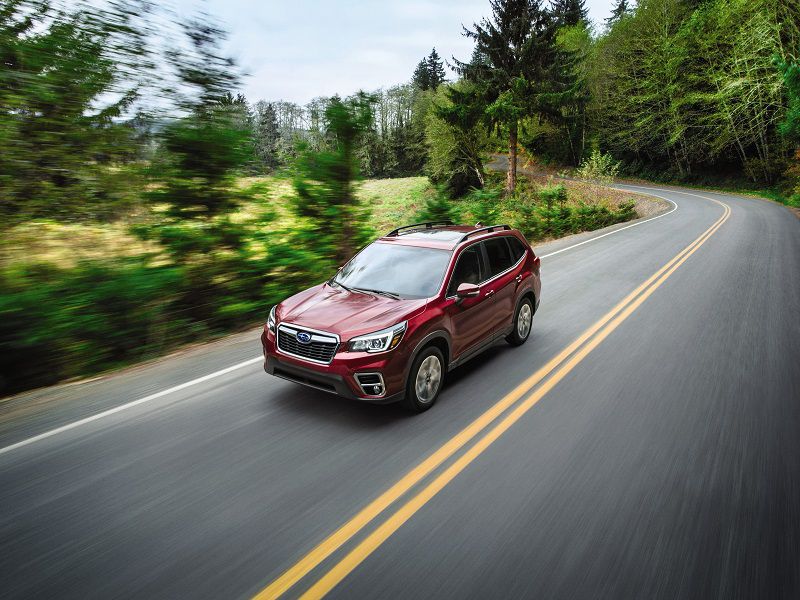
Photo by Subaru
8. 2020 Volkswagen Tiguan
Volkswagen isn’t typically known as a value brand, but the German carmaker has worked hard in recent years to align more of its products with American demands for spaciousness and affordability. The 2020 Volkswagen Tiguan compact crossover does exactly that, with prices starting at $24,945.
The Tiguan provides an extra-spacious rear seat, available seven-passenger seating, lots of standard equipment, and reasonable prices. It also brings European-style upscale styling and nimble handling. The interior isn’t lavishly finished, fuel economy is disappointing at an EPA-estimated 23 to 25 mpg in mixed driving, and the optional third-row seat is only big enough for emergencies. But there’s still a lot going on for the money, especially if you love how the Tiguan looks.
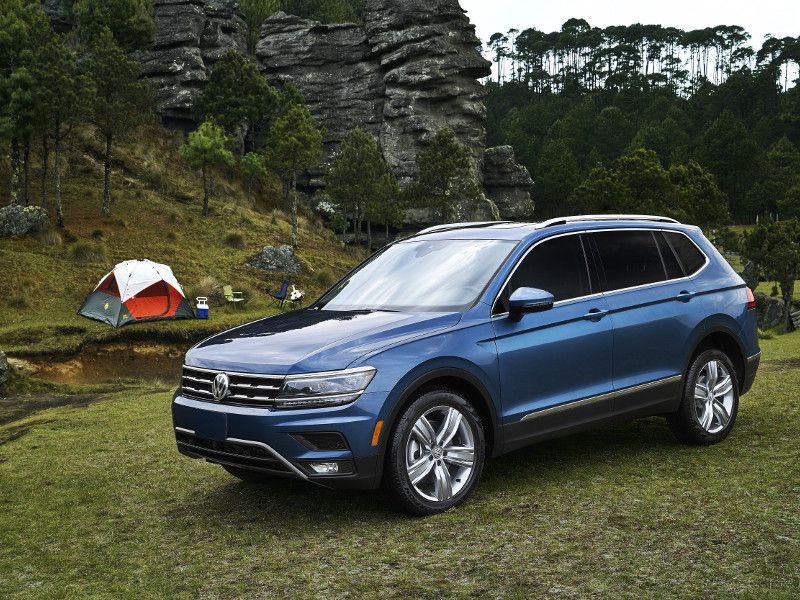
Photo by Volkswagen
9. 2020 Honda CR-V
The 2020 Honda CR-V is another compact crossover that provides a roomier interior than most similarly priced competitors — and many larger, more expensive SUVs. Its low cargo floor opens up massive cargo space, and the cabin feels open and airy. But it doesn’t drive like a big box, with a smooth ride and agile handling.
The CR-V starts at $25,050, and that price includes more standard features this year, including a fully featured infotainment system and a suite of advanced driver-assistance technology. The CR-V also has strong resale value and excellent EPA fuel economy estimates: 29 to 30 mpg with the standard 190-horsepower four-cylinder engine, or 38 mpg with the newly introduced gas-electric CR-V Hybrid (priced from $27,750).
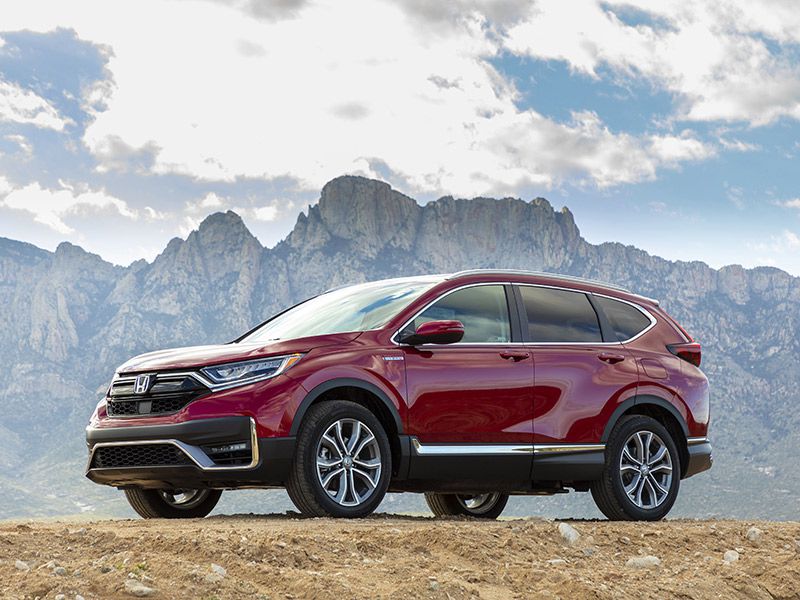
Photo by Honda
10. 2020 Mazda CX-5
Like the Mazda CX-30, the 2020 Mazda CX-5 is a great value not because it’s the most expensive, the most spacious, or the most fuel-efficient SUV you can buy. Instead, this compact crossover delivers luxury flavor at mainstream prices. And unlike the CX-30, you get a more SUV-like high seating position, a more usable rear seat, and substantially more cargo space.
Starting at $25,090, the CX-5 brings a sense of panache that’s missing from most of its competitors. You’ll find that in its high-end aesthetics, both inside and out, as well as in its poised and confident handling. You don’t need a fully loaded CX-5 to enjoy high-end features, but its top trim levels — featuring upgraded cabin materials and a powerful turbocharged engine — offer an Lexus-level experience at Toyota-level prices (less than $40,000).
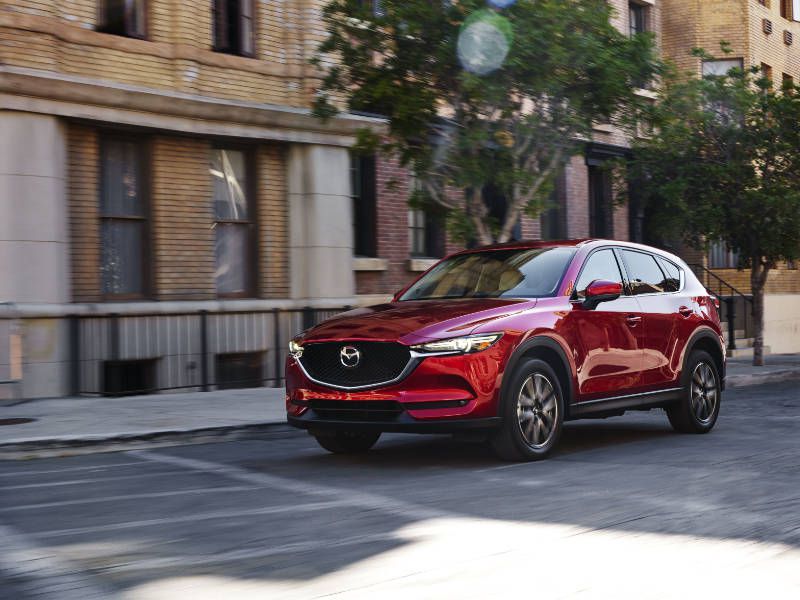
Photo by Mazda